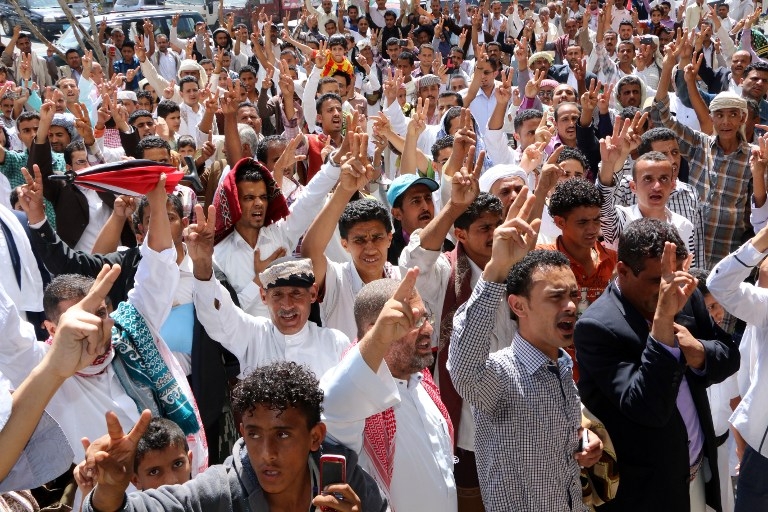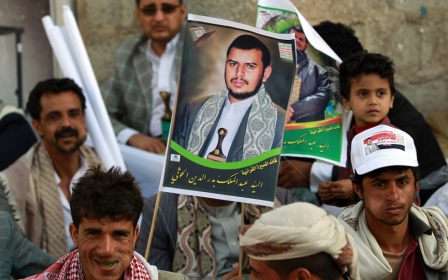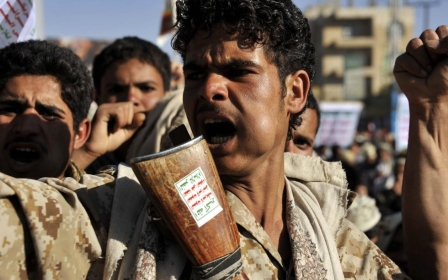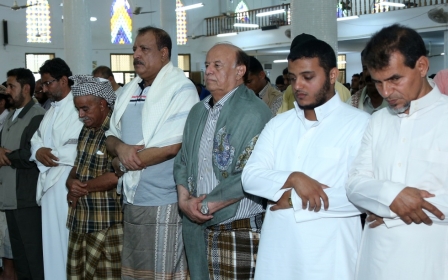Can the city of Taiz halt the Houthis?

Taiz, an ancient city among the steep cliffs of central Yemen, is where protests against Ali Abdullah Saleh first broke out in early 2011.
Despite a crackdown by security forces, a small, student-led, protest movement inspired by the Arab Spring grew there and spread across Yemen.
Today, nearly four years on, Taiz is back in the spotlight.
Houthi fighters who last year ousted Yemeni president Abd Rabu Mansour Hadi and seized large chunks of northern Yemen, have fought their way into the city.
With armoured vehicles and heavy weapons plundered from army bases in the north, the Shiite militiamen have taken control of a radio-tower in Taiz, the mayor’s office and the city’s international airport. Mass demonstrations against the Houthis have gripped the city for days.
The Houthis say they entered Taiz, a strategic city 260 km south of Sanaa which straddles Yemen's tribal north and oil-rich south, in order to bring about stability and wipe out al-Qaeda militants controlling towns and villages nearby.
But their opponents, primarily president Hadi who last month escaped house arrest and fled to the port city of Aden, accuse the Houthis of being backed by Iran and attempting to stage a military coup.
Whatever the Houthis’ intentions, the fight for Taiz will prove pivotal.
If the Houthis capture the city they will secure a corridor through which they can launch an offensive against Hadi in Aden and access the Bab al-Mandab strait, a vital corridor through which much of the world’s maritime trade passes.
If the Houthis fail and protests against them in Taiz continue to grow, the rebels could find themselves facing a popularly-backed insurgency akin to that of 2011.
Taiz, a hub of political opposition famed for its lawyers, novelists and relative cosmopolitanism, has, until now, been a pocket of resistance against the Houthis' advance that has left regional powers scrambling and caused America to evacuate its embassy staff, a blow to U.S. counter-terrorism operations.
For months students and activists from Islamist and socialist parties have marched - and been attacked by police - in Taiz, denouncing the Houthis as a violent and socially conservative force and accusing them of “stealing the revolution.”
But though civil unrest undid Saleh, ongoing rallies in Sanaa and elsewhere have not stopped the Houthis, a group that boasts heavy arms, several media outlets and tens of thousands of supporters.
“We’re trying hard to resist them but it’s hard,” Ahmed Mosabi, a leading activist in Taiz told Middle East Eye. “Sometimes it feels like we’ve returned to the pre-Saleh days. People are afraid to speak out,” he said.
“In 2011 there were two sides, you were either with the regime or against it," another activist, Jamal Saba, said.
"Now there are dozens of sides, our country is quickly fracturing.”
Stay informed with MEE's newsletters
Sign up to get the latest alerts, insights and analysis, starting with Turkey Unpacked
Middle East Eye delivers independent and unrivalled coverage and analysis of the Middle East, North Africa and beyond. To learn more about republishing this content and the associated fees, please fill out this form. More about MEE can be found here.




